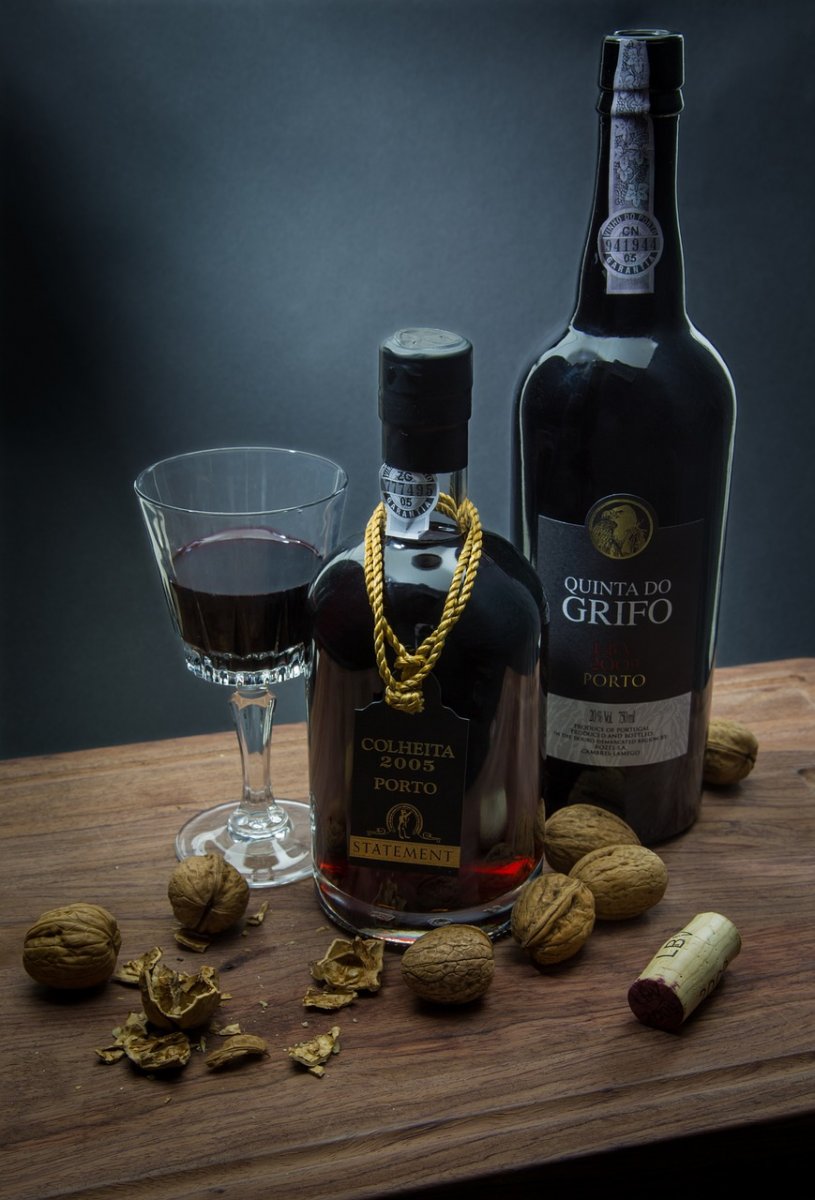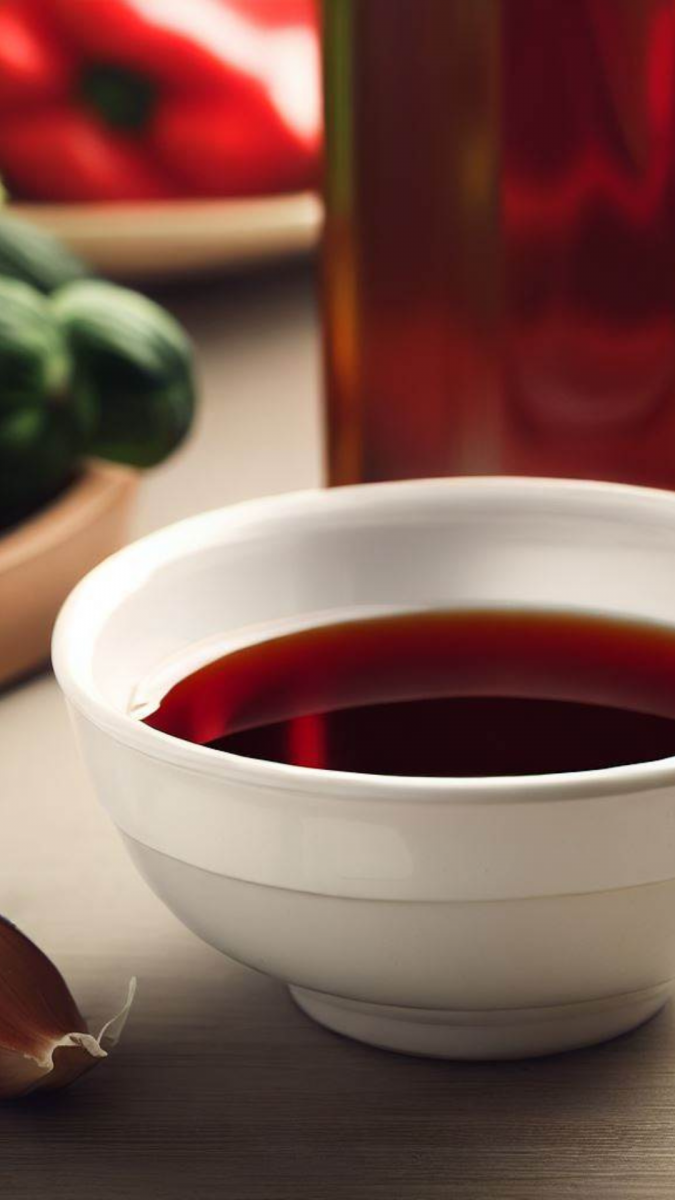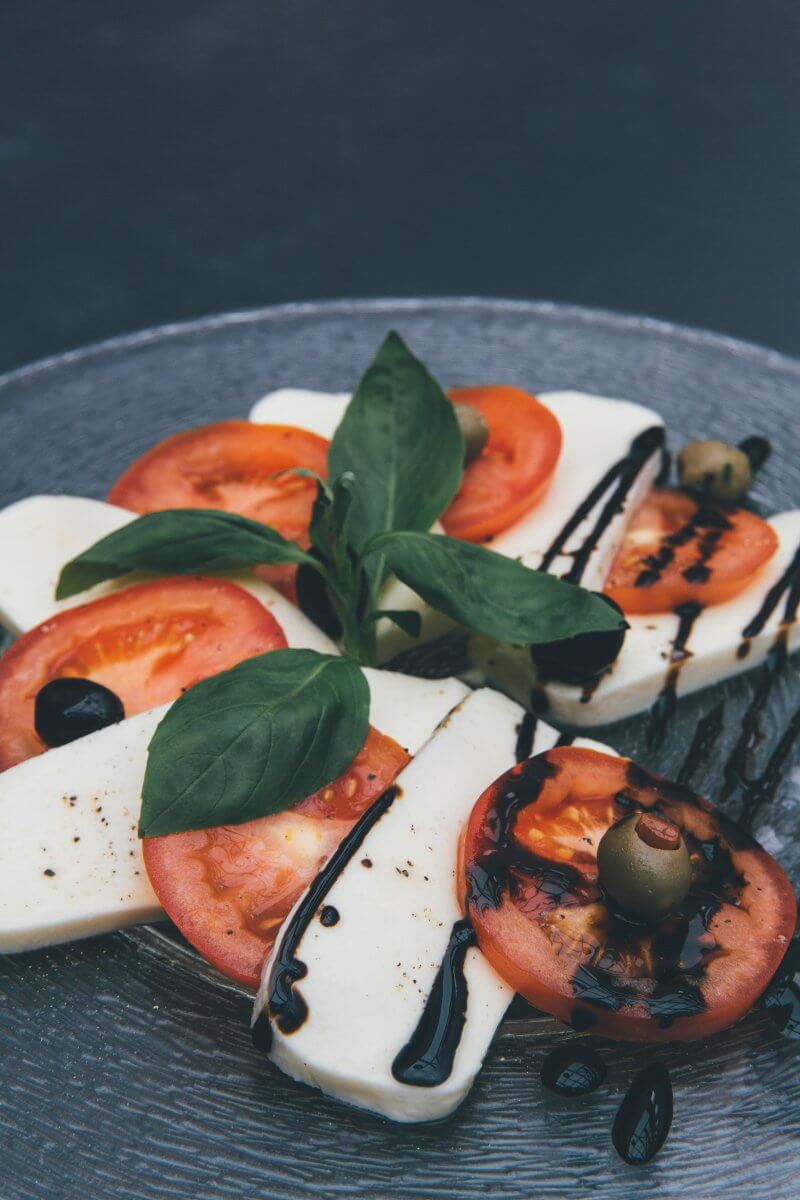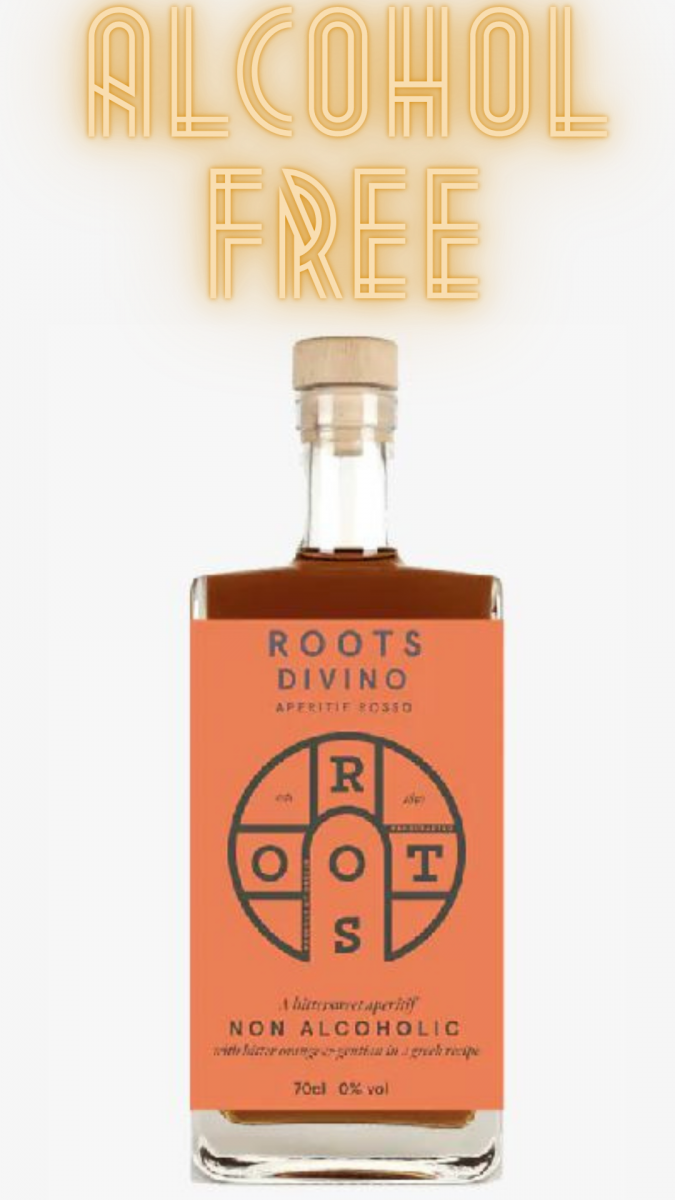What can I use as a substitute for Vermouth?
What can I use as a Sweet Vermouth susbtitute? There are actually two categories where you would use Vermouth – in cooking and cokcktails. First of all I will give you the overall list of substitutes and then I will break it down a bit further for you. If you need a sweet Vermouth substitute you should try using: Dry red wine, Sweet red wine, Sherry, Port, Red Wine vinegar, Balsamic vinegar, Amaro Averna, Grape Juice, Sweet Maderia, Roots Divino.
What is Vermouth?
Vermouth is a fortified wine infused with various herbs, spices, and botanicals, often including wormwood, which gives the beverage its name. Did you know that the word “vermouth” is derived from the German word “wermut,” which means wormwood?
The production of vermouth involves steeping the base wine in a blend of botanicals, which can include ingredients such as gentian, chamomile, cinnamon, cardamom, citrus peels, and more. After the infusion process takes place, the mixture is then fortified with a neutral grape spirit or brandy, which increases its alcohol content and helps preserve the flavors.
There are two main types of vermouth: sweet (red) vermouth and dry (white) vermouth.
Sweet Vermouth (red)
Sweet vermouth tends to be darker and has a higher sugar content, making it richer and more aromatic. It is typically used in cocktails that call for a richer, sweeter flavor profile. It adds depth and complexity to the drink and balances the intensity of other ingredients. Classic cocktails where sweet vermouth is a key ingredient are the Manhattan, Negroni, Rob Roy, or Black Manhattan.
Sweet vermouth can also be used in some modern cocktails or as a substitute for other fortified wines, such as in certain punches or sangria recipes. Additionally, it can be enjoyed on its own, served over ice with a citrus twist or used as an ingredient in cooking to enhance the flavors of various dishes.
Dry Vermouth (white)
Dry vermouth on the otherhand is lighter and less sweet, with a stronger herbal and floral character. It is a lighter and less sweet fortified wine that works well in cocktails that require a drier and more herbaceous profile. It imparts a subtle botanical flavor without adding significant sweetness. Here are some instances where you can use dry vermouth: Martini, Gibson, Dry Martini, Tuexdo, or Adonis.
Dry vermouth can also be used as a modifier in various cocktail recipes, providing a dry and herbaceous element without adding too much sweetness. Additionally, it can be used as a cooking ingredient in sauces and marinades, imparting subtle flavors to the dish.
We have thrown in a couple of alcohol-free options for you to consider too.
Okay, before we look at your vermouth substitute options, let’s deal with that empty cupboard situation!
Where can I buy Vermouth?
If you want to be more prepared and ensure you don’t run out of vermouth then you should stock up now.
Nowadays you can buy vermouth in most liquer stores. However as more people are looking to move away from drinking alcohol we thought we would share this alcohol-free option.
So why not jump on and place your order today.
STOCK UP NOW!
Made with bitter oranges and wormwood this delicious apertif is alcohol-free.
Perfect for mocktails, or splash a dash of vermouth style flavor in sauces and bakes.
What can I substitute for Vermouth?
Here are some of the best ingredients to substitute the flavor and role that vermouth provides in your recipes.
- Dry red wine
- Sweet red wine
- Sherry
- Port
- Red wine vinegar
- Balsamic vinegar (alcohol-free)
- Amaro Averna
- Grape Juice (alcohol-free)
- Sweet Maderia
- Roots Divino (alcohol-free)
Vermouth substitutes
Dry red wine
Dry red wine can be used as a substitute for vermouth in some recipes, particularly in cooking and certain cocktails. When using dry red wine as a vermouth substitute, consider the following tips:
- Cooking: In recipes that call for a splash of vermouth to deglaze a pan, add depth to a sauce, or enhance the flavor of a dish, you can use dry red wine as a substitute. Use an equal amount of dry red wine in place of the vermouth, but keep in mind that red wine may have a stronger flavor, so you might want to start with a slightly smaller quantity and adjust to taste.
- Cocktails: While it’s not an exact substitute due to the differences in flavor profiles, you can use dry red wine in some cocktails that call for sweet vermouth. So if a recipe calls for sweet vermouth, using a dry red wine might make the cocktail less sweet, so you may want to add a small amount of sugar or a sweet liqueur to balance the taste.
- Sangria: Dry red wine can be used in place of sweet vermouth in sangria recipes. Sangria typically includes red wine, fruits, sweeteners, and sometimes a splash of brandy or other spirits. Using dry red wine will make the sangria less sweet, so you might need to adjust the sweetness by adding a sweet liqueur or simple syrup.
- Experiment: Keep in mind that substituting dry red wine for vermouth may alter the overall taste and character of a dish or cocktail. It’s best to experiment and taste as you go to ensure the desired flavor profile is achieved.
While dry red wine can work as a substitute for vermouth in some instances, it’s important to remember that vermouth is a fortified wine infused with herbs and botanicals, which gives it a unique flavor that may not be fully replicated with regular dry red wine alone. In cocktails, using a vermouth substitute may lead to a different taste profile than the original recipe, so consider trying a small batch first to see if it suits your preferences – but go easy now!

Sweet red wine
Using sweet red wine as a substitute for vermouth can work in certain recipes, particularly in cooking and some cocktails. When substituting sweet red wine for vermouth, keep the following tips in mind:
- Cooking: Sweet red wine can be used as a substitute for sweet vermouth in recipes that call for a splash of vermouth to add depth and sweetness to a dish. For example, you can use it in sauces and marinades. Since sweet red wine is already sweet, you may need to reduce or omit any additional sweeteners in the recipe.
- Sangria: Sweet red wine is an excellent substitute for sweet vermouth in sangria recipes. Sangria typically includes red wine, fruits, sweeteners, and sometimes additional spirits. Using sweet red wine will add richness and sweetness to the sangria.
- Cocktails: Sweet red wine can be used in some cocktails that call for sweet vermouth, but you should be mindful of the additional sweetness it brings. Adjust the recipe to omit any other sweeteners that the original cocktail might have called for.
- Reduction: If the sweet red wine you have is too sweet or intense, you can try reducing it on the stovetop to concentrate the flavors and reduce the sweetness. This can make it more suitable as a vermouth substitute in certain recipes.
- Experiment: As with any substitution, it’s essential to experiment and taste as you go. The flavor profile of sweet red wine is different from vermouth, which is a fortified wine infused with herbs and botanicals. Remember the result may not be an exact match.
Also remember that vermouth has a distinct herbal and botanical character that may not be fully replicated by sweet red wine alone. While using sweet red wine as a substitute can work in some instances, it may lead to a different taste profile in your dish or cocktail. Always adjust the amounts and other ingredients accordingly to achieve the desired flavor balance.

Sherry
Sherry can be an excellent substitute for vermouth in various recipes, especially in cooking and certain cocktails. When using sherry as a substitute for vermouth, consider the following tips:
- Cooking: Sherry can be used as a substitute for dry vermouth in cooking, especially in dishes where you need a dry wine for deglazing, sautéing, or adding flavor to sauces and stews. Use an equal amount of sherry in place of dry vermouth, but keep in mind that sherry has a distinct nutty and savory flavor profile, so it might bring different nuances to the dish.
- Cocktails: Sherry can be used as a substitute for both dry and sweet vermouth in cocktails, depending on the type of sherry you have. For dry vermouth, use a dry sherry, such as Fino or Manzanilla, to maintain the drier profile. For sweet vermouth, use a sweeter sherry variety, such as Amontillado or Oloroso. Note that sherry will have a more pronounced nutty and wine-like character, which may alter the overall taste of the cocktail.
- Martinis: You can create a “Sherry Martini” by substituting dry vermouth with dry sherry in a classic Martini recipe. Combine gin or vodka with dry sherry, and garnish with an olive or lemon twist.
- Red Sherry Substitution: If a recipe calls for sweet red vermouth, you can try using a sweet or cream sherry, like Pedro Ximénez, as a substitute. However, be aware that sherry is usually sweeter and richer than sweet red vermouth, so you may need to adjust other sweeteners in the recipe accordingly.
- Experiment: As with any substitution, it’s essential to experiment and taste as you go. Sherry has its own unique flavor profile, so it may not perfectly replicate the herbal and botanical notes of vermouth. Try small batches and adjust the amount to suit your taste preferences.
Sherry is a versatile wine and can add depth and complexity to both savory and sweet dishes. It’s a good idea to have a few different varieties on hand if you plan to use sherry as a vermouth substitute in various recipes.

Port
Using port as a substitute for vermouth can add a unique twist to certain recipes, especially in cooking and specific cocktails. When substituting port for vermouth, consider the following tips:
- Cooking: Port can be used as a substitute for sweet vermouth in cooking, especially in recipes where you need a sweet and flavorful wine to enhance the dish. It works well in sauces, stews, and marinades. Keep in mind that port is typically sweeter and richer than sweet vermouth, so you may want to adjust the quantity and other sweeteners in the recipe to achieve the desired taste.
- Cocktails: Port can be used as a substitute for sweet vermouth in cocktails, particularly in drinks that call for a sweet and fortified wine. For example, you can use port in a Manhattan variation or a variation of the Negroni by replacing sweet vermouth with port. The result will be a richer, fruitier, and more complex flavor profile – now that sounds nice.
- Mulled Wine: If you want to make a warm, spiced drink like mulled wine, you can use port as a base instead of red wine and add spices, fruits, and sweeteners to create a delightful winter beverage.
- Experiment: As with any substitution, it’s important to experiment and taste as you go. Port has its own distinct characteristics, with a fruity, nutty, and sometimes spicy profile, which may not perfectly replicate the flavors of vermouth. Start with a smaller amount and adjust to your taste preferences.
- Consider the Type of Port: There are different types of port, including ruby, tawny, and white port. Each type has its unique flavor profile and sweetness level. Ruby port tends to be sweeter and more full-bodied, while tawny port is nuttier and lighter. White port is less common but can provide a different twist due to its lighter and more citrusy character.
When using port as a substitute for vermouth, keep in mind that it may alter the overall taste of the dish or cocktail. However, this can also be an opportunity to create exciting new flavors and tailor the recipe to your preferences. As always, adjust the quantities and other ingredients accordingly to achieve the desired balance in your recipe.

Red wine vinegar
Using red wine vinegar as a substitute for vermouth can work in certain recipes, particularly in cooking. However, it’s important to note that red wine vinegar is more acidic and pungent compared to vermouth, so the flavor profile will be different. When substituting red wine vinegar for vermouth, consider the following tips:
- Cooking: Red wine vinegar can be used as a substitute for dry vermouth in cooking, especially in recipes where you need acidity and depth of flavor. Use a smaller amount of red wine vinegar than the amount of vermouth called for in the recipe, as the vinegar’s acidity can be quite intense. You can also dilute the vinegar with water or stock to reduce its sharpness. Keep in mind that red wine vinegar will add a tangy note to the dish, which may not be present when using vermouth.
- Salad Dressings and Marinades: Red wine vinegar is commonly used in salad dressings and marinades to add acidity and brighten the flavors. You can use it in place of dry vermouth in recipes that call for wine-based dressings or marinades.
- Stir-Fries and Sauteed Dishes: In some stir-fry or sauteed dishes, where wine is used to deglaze the pan or add a splash of flavor, you can use red wine vinegar as an alternative. Just be mindful of its acidity and adjust the quantity accordingly.
- Avoid in Cocktails: Red wine vinegar is not a suitable substitute for vermouth in cocktails. Vermouth is a fortified wine with a unique blend of herbs and botanicals, which contributes to its distinct flavor profile. Using red wine vinegar in cocktails would likely result in a harsh and undesirable taste.
- Experiment: As with any substitution, it’s essential to experiment and taste as you go. While red wine vinegar can add acidity and flavor to your dishes, it may not perfectly replicate the nuanced flavors of vermouth. Adjust the amounts and other ingredients to achieve the desired taste and balance in your recipe.
In summary, red wine vinegar can be used as a substitute for vermouth in certain cooking applications, but it is not recommended for use in cocktails. Be aware of its intense acidity and consider the specific flavor profile it brings to the dish.

Balsamic vinegar
Using balsamic vinegar as a substitute for vermouth can work in some recipes, particularly in cooking. However, as it has a very different flavor profile from vermouth, the resulting dish may have a unique flavor. When substituting balsamic vinegar for vermouth, consider the following tips:
- Cooking: Balsamic vinegar can be used as a substitute for sweet vermouth in certain cooking applications, especially in recipes that call for a sweet wine to add depth and flavor. However, balsamic vinegar is much more acidic and intense than vermouth, so you should use it sparingly. Start by using a smaller amount of balsamic vinegar than the vermouth called for in the recipe and adjust to taste. If the dish requires more liquid, you can dilute the balsamic vinegar with water or stock.
- Reduction: To mellow the strong acidity of balsamic vinegar, you can try reducing it on the stovetop. By simmering balsamic vinegar over low heat until it thickens and its flavors concentrate, you can achieve a more syrupy and less acidic consistency, which might be better suited as a substitute for vermouth in certain dishes.
- Marinades and Glazes: Balsamic vinegar can be used in marinades and glazes to add depth of flavor and sweetness. You can substitute balsamic vinegar for vermouth in recipes that call for wine-based marinades or glazes.
- Roasted Vegetables: Balsamic vinegar pairs well with roasted vegetables, especially when it’s used to create a glaze. You can use it in place of vermouth in recipes that involve roasting vegetables with wine.
- Avoid in Cocktails: Balsamic vinegar is not suitable for use in cocktails as a substitute for vermouth. Vermouth has a unique blend of herbs and botanicals, which is crucial to the taste of cocktails. Using balsamic vinegar in cocktails would result in an entirely different and most likely undesirable flavor.
- Experiment: As with any substitution, it’s essential to experiment and taste as you go. Balsamic vinegar has a strong and distinctive flavor that may not be suitable for all recipes. Adjust the amounts and other ingredients to achieve the desired taste and balance.
In summary, balsamic vinegar can be used as a substitute for sweet vermouth in certain cooking applications, but it is not recommended for use in cocktails. Be mindful of its intense acidity and consider the specific flavor profile it brings to the dish.

Amaro Averna
Using Amaro Averna as a substitute for vermouth can be a delightful way to add complexity and depth to certain cocktails. Amaro Averna is a bitter Italian herbal liqueur with a sweet and slightly spicy flavor profile, making it an interesting alternative to vermouth. When using Amaro Averna as a substitute, consider the following tips:
- Negroni Variation: Amaro Averna can be used as a substitute for sweet vermouth in a Negroni variation. Mix equal parts gin, Campari (or another bitter liqueur), and Amaro Averna, and garnish with an orange twist. This will result in a darker and more complex version of the classic Negroni.
- Manhattan Variation: You can use Amaro Averna as a substitute for sweet vermouth in a Manhattan cocktail. Combine whiskey, Amaro Averna, and bitters, and garnish with a cherry. This will create a bittersweet and herbal twist on the traditional Manhattan.
- Boulevardier Variation: Similar to the Negroni, you can replace sweet vermouth with Amaro Averna in a Boulevardier cocktail. Use equal parts whiskey, Campari, and Amaro Averna, and garnish with an orange twist.
- Amaro Spritz: Create an Amaro Spritz by mixing Amaro Averna with sparkling water or soda, and adding a splash of citrus juice for brightness. This refreshing and slightly bitter drink can be served over ice and garnished with a lemon slice or a sprig of fresh herbs.
- Experiment: Amaro Averna’s flavor profile is unique and may not be a perfect match for all vermouth-based cocktails. It’s best to experiment with different proportions and ingredients to find the balance that suits your taste preferences.
As Amaro Averna is a herbal liqueur with a bitter component, it can bring a more complex and aromatic character to cocktails compared to regular vermouth.

Grape Juice (alcohol-free)
Using grape juice as a substitute for vermouth can be challenging since grape juice lacks the alcohol content and the complex herbal and botanical flavors found in vermouth. However, if you want to achieve a non-alcoholic version of a cocktail or dish that calls for vermouth, you can try the following:
- Non-Alcoholic Cocktails: If a cocktail recipe calls for vermouth, you can use grape juice as a non-alcoholic alternative. Keep in mind that the grape juice will be much sweeter and less complex than vermouth, so you might need to adjust other ingredients to balance the flavors.
- Non-Alcoholic Sangria: In a non-alcoholic sangria recipe, you can use grape juice as a substitute for red or white vermouth. Mix the grape juice with other fruit juices, sliced fruits, and sparkling water to create a refreshing and fruity beverage.
- Cooking: In recipes that call for a splash of vermouth to add flavor to sauces, marinades, or deglazing, you can use grape juice as a non-alcoholic substitute. Just be aware that grape juice’s sweetness may alter the taste of the dish, so you might need to adjust other seasonings or liquids accordingly.
- Reduction: To give the grape juice a more concentrated flavor and reduce some of its sweetness, you can try reducing it on the stovetop. Simmer the grape juice over low heat until it thickens and its flavors intensify. This concentrated grape juice can be used in recipes that call for vermouth.
- Experiment: Since grape juice lacks the complexity of vermouth, using it as a substitute will not yield the exact same result. It’s essential to experiment with different quantities and combinations of ingredients to achieve the desired taste.
While grape juice can work as a non-alcoholic substitute for vermouth in some instances, it’s important to remember that vermouth is a fortified wine infused with herbs and botanicals, which contributes to its unique flavor. The substitution may not perfectly replicate the characteristics of vermouth, but it can provide an alternative for those who prefer non-alcoholic options.

Sweet Madeira
Sweet Madeira can be an excellent substitute for sweet vermouth in certain recipes and cocktails. Madeira is a fortified wine from Portugal with a rich, sweet, and nutty flavor profile, which can add depth and complexity to your drinks and dishes. When using sweet Madeira as a substitute for sweet vermouth, consider the following tips:
- Cocktails: Sweet Madeira can be used in cocktails that call for sweet vermouth. For example, you can use it in place of sweet vermouth in classic cocktails like the Manhattan or the Negroni. This substitution will result in a unique and rich flavor profile, giving your cocktails a delicious twist.
- Wine Reduction: Since Madeira is sweeter and more flavorful than sweet vermouth, you can consider reducing it on the stovetop to concentrate the flavors. Simmer the Madeira over low heat until it thickens and intensifies its taste, then use it in recipes that call for vermouth to add depth and richness to your dishes.
- Dessert Sauces: Sweet Madeira can be used in dessert sauces, reductions, or glazes, where you need a sweet and flavorful wine. It pairs well with fruits, chocolates, and various desserts.
- Cooking: Sweet Madeira can be used in savory dishes to add a touch of sweetness and complexity. You can use it in recipes that call for sweet vermouth, such as in sauces, marinades, or deglazing pans.
- Experiment: As with any substitution, it’s essential to experiment and taste as you go. While sweet Madeira can work as a substitute for sweet vermouth in many cases, it will bring its own unique flavor to the recipe. Adjust the amounts and other ingredients to achieve the desired taste and balance.
Remember that Madeira is stronger and sweeter than sweet vermouth, so you may need to adjust the quantity or other sweeteners in the recipe accordingly. Also, keep in mind that Madeira has a distinct nutty character, which will add a unique dimension to your drinks and dishes. Enjoy the process of experimenting with this delightful substitute!

Roots Divino (alcohol-free)
Roots Divino now make a blend of alcohol-free botanicals that can be used as a substitute for vermouth in certain recipes and cocktails. Like vermouth, it has a herbal and aromatic character that can add complexity to your drinks and dishes. When using Roots Divino as a substitute for vermouth, consider the following tips:
- Cocktails: You can use Roots Divino in cocktails that call for vermouth. It can be a substitute for both sweet and dry vermouth, depending on the specific cocktail you’re making. For example, you can use it in a Martini, Negroni, or Manhattan as a vermouth replacement. Adjust the amounts according to your taste preferences, as Roots Divino may have a different flavor profile from traditional vermouth.
- Spritz Variation: Create a Spritz variation by mixing Roots Divino with sparkling water or soda and adding a slice of citrus or a sprig of fresh herbs for garnish. This will result in a refreshing and slightly bitter aperitif drink.
- Cooking: Roots Divino can be used in cooking, just like vermouth. You can use it in recipes that call for vermouth to deglaze pans, add flavor to sauces, or enhance the taste of various dishes.
- Reduction: If you find that Roots Divino is too intense or sweet for a particular recipe, you can try reducing it on the stovetop to concentrate the flavors. This will make it more suitable for certain dishes or cocktails.
- Experiment: As with any substitution, it’s essential to experiment and taste as you go. Roots Divino has its own unique flavor profile, so it may not perfectly replicate the taste of vermouth. However, it can add a distinct and delightful twist to your creations.
Remember that Roots Divino will have a different balance of flavors compared to traditional vermouth, so adjustments will be necessary in your recipes. Have fun exploring and discovering new taste experiences with this intriguing substitute!

FAQs
What is considered sweet vermouth?
Sweet vermouth is a fortified wine flavored with various botanicals, herbs, and spices, typically including wormwood, which gives it its distinctive bitterness. It is called “sweet” vermouth to distinguish it from dry vermouth, which has a lower sugar content and is lighter and less sweet in flavor. Sweet vermouth has a rich, complex taste with a sweet and slightly bitter profile, making it a popular ingredient in classic cocktails such as the Manhattan and Negroni. It’s commonly enjoyed on its own as an aperitif or used as a flavoring agent in cooking. Common brands of sweet vermouth include Martini & Rossi, Carpano Antica Formula, and Cocchi Vermouth di Torino.
How can you tell if vermouth is sweet?
If you want to check if a vermouth is sweet start by checking the label. Look for the term “sweet” or “rosso” on the label. This is the most straightforward way to identify sweet vermouth. Buy an Italian vermouthas the are generally sweeter than their French counterparts. You can also look at the colour of the vermouth. Sweet vermouth is typically a deeper red or brown color compared to the lighter amber or gold hue of dry vermouth. However, this isn’t a foolproof method as white vermouths can also be sweet and some red vermouths can be dry.
And finally you can check if vermouth is sweeet by its taste. This is the most definitive way to know for sure, but it’s not ideal if you haven’t opened the bottle yet. If you have the opportunity to taste a small amount, sweet vermouth will have a noticeable sweetness compared to the drier, more herbal and botanical flavor profile of dry vermouth.
Fun Facts
- Royal beginnings: The first commercially successful sweet vermouth was created in late 18th century Turin, Italy by Antonio Carpano. Legend has it, Carpano concocted this sweet, aromatic wine for the King of Sardinia, and its popularity quickly spread beyond the royal court.
- Secret ingredient (no longer so secret): Traditionally, vermouth contained wormwood, a bitter herb that contributed to its distinctive flavor. However, due to concerns about its potential health risks, wormwood was banned in many countries in the early 20th century. Today, vermouth still boasts a complex flavor profile, but it comes from a variety of other botanicals like spices, roots, and herbs.
- More than just sweet: While sweetness is a defining characteristic, good quality sweet vermouth offers a layered flavor profile beyond just sugar. Depending on the specific recipe, you might experience hints of chocolate, vanilla, citrus, or even floral notes. These flavors come from the careful selection and blending of various botanicals during the production process.
Summary for Vermouth substitutes
Okay – that’s you all sorted with suitable substitutes for vermouth.
In conclusion, vermouth is a fortified wine infused with various herbs, spices, and botanicals, available in both sweet and dry varieties. It is commonly used in cocktails such as the Martini, Negroni, and Manhattan, as well as enjoyed on its own as an aperitif. When considering substitutes for vermouth:
- Sweet red wine, such as Port or Madeira, can be used as a substitute for sweet vermouth in cooking and cocktails.
- Dry red wine can be used as a substitute for dry vermouth in cooking and cocktails.
- Amaro Averna, a bitter herbal liqueur, can be used as a substitute for sweet vermouth in cocktails.
- Balsamic vinegar can be used as a substitute for sweet vermouth in cooking, but it is not suitable for cocktails.
- Grape juice can be used as a non-alcoholic substitute for vermouth in certain applications, especially in cooking and non-alcoholic cocktails.
- Roots Divino (alcohol-free), an alcoholic botanical liqueur, can be used as a substitute for vermouth in cocktails and cooking.
When substituting, keep in mind that each substitute will bring its own unique flavor profile, so experimentation is key to achieving the desired taste and balance in your recipes. Always adjust the quantities and other ingredients accordingly to suit your preferences and the specific dish or cocktail you are preparing. Enjoy.
We have gathered together a lot more facts on ingredients such as herbs, spices, oils, nuts, etc. if you would like to learn some more.

